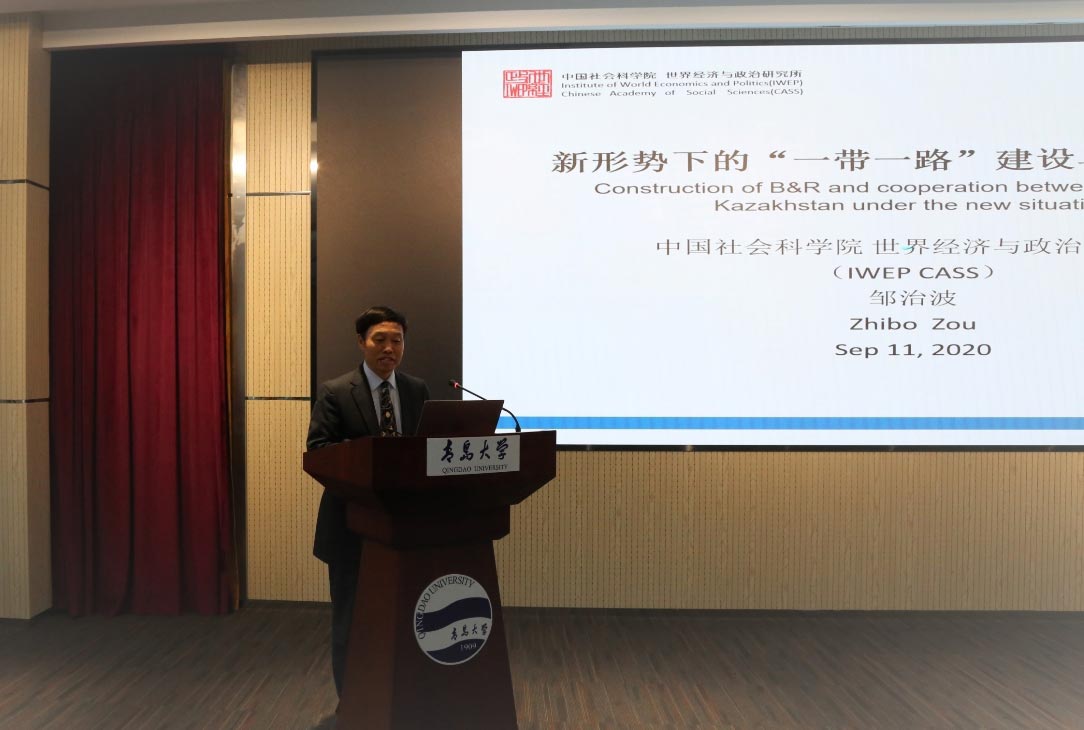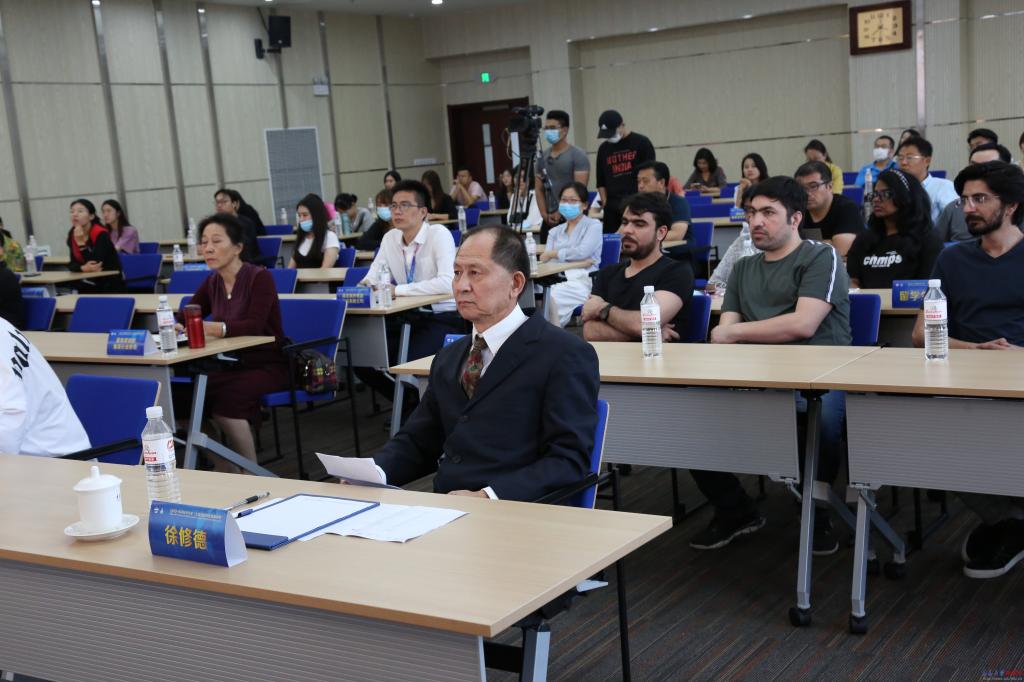News Network News Recently, QDU-KIMEP University's "SCO Economy and Trade Culture Online Salon" was held in the multi-functional hall of Qingdao University Conference Center. Researcher Zou Zhibo, deputy director of the Institute of World Economics and Politics, Chinese Academy of Social Sciences, Qian Zhikai, director of the SCO Department of the Municipal Bureau of Commerce, Men Weiwei, deputy director, Zhang Xiwei, deputy director of the Enterprise Service Department of the Municipal Bureau of Industry and Information Technology, Municipal Furniture Association, Zhejiang Chamber of Commerce, Municipal Textile and Apparel Industry Association, Haier Overseas Electric Appliances, Shenzhoutong, Qingdao Ruijinlong Automobile and other 22 chambers of commerce and enterprise representatives, more than 90 people including teachers, students and international students of Qingdao University participated in the offline salon activities. More than 30 people, including Dean of the College of Social Sciences of KIMEP University in Kazakhstan, Professor Parker, Ulan, Dina, and Kazakh businessmen, entrepreneurs, the Management Committee of the Shanghai Cooperation Demonstration Zone, and the Qingdao Building Group participated in the online salon. The event was hosted by Professor Xu Xiude, Dean of the Belt and Road Research Institute of Qingdao University.

Zou Zhibo made a keynote report on "The Belt and Road Initiative and China-Kazakhstan Cooperation under the New Situation". From the perspective of the global environment, the report expounded the impact of major changes in the international situation on the construction of the "Belt and Road" and new opportunities of China-Kazakhstan "Belt and Road" cooperation, as well as Qingdao's important position for it. Zou Zhibo believes that the current international situation has undergone major changes, with confrontation in politics and diplomacy, economic and technological "decoupling", and "disconnection" in cultural exchanges. A domestic demand-led economy is the only way for the development of an economic power. Under this new situation, it has also brought a huge impact on the construction of the "Belt and Road". Kazakhstan has a prominent position in the construction of the "Belt and Road", and China-Kazakhstan "Belt and Road" cooperation has broad prospects. He pointed out that Qingdao is a key node city for China-Kazakhstan "Belt and Road" cooperation. As a central city of international economy, trade and logistics, a central city of SCO cooperation, a central city of the China-Japan-Korea Free Trade Zone, and a central marine city, Qingdao has a significant geographical location. Therefore, Qingdao should become a pioneer city in China-Kazakhstan "Belt and Road" cooperation, and actively carry out economic, trade, logistics and industrial cooperation with Kazakhstan. Qingdao University and KIMEP University should become the forerunners of China-Kazakhstan "Belt and Road" cooperation, become the main think tanks to promote the cooperation between Qingdao and Kazakhstan, and become the leaders of the cooperation between China and Central Asian universities and think tanks.
Professor Parker gave a keynote report on "CCASC and China's Rise in Central Asia". The report introduces the "Belt and Road" initiative and its economic development goals, as well as the major achievements Kazakhstan has made in foreign investment and cooperation projects with China in the context of the "Belt and Road" initiative.

After the report meeting, the participants from China and Kazakhstan had a full exchange.
In order to promote economic, trade and cultural exchanges between Qingdao and SCO countries, Qingdao University and KIMEP University of Kazakhstan jointly hosted the "SCO Economy and Trade Culture Online Salon". The salon is held once a week at fixed times online or offline (in the current period of severe epidemic, Kazakhstan does not have offline venues for the time being). The organization of the conference is the responsibility of both respectively. The "salon" format is planned to be conducted by combining keynote speeches by experts with questions and discussions. The keynote speech is to be limited to 30 minutes, and questions and discussions are limited to about 1 hour. In addition to the teachers and students of the school, the participants in the "Salon" are widely attended by government officials, industry chambers of commerce and business people from two countries. The content of the "Salon" puts emphasis on promoting economic, trade and cultural exchanges between China and SCO-related countries, focusing on popularity and applicability.